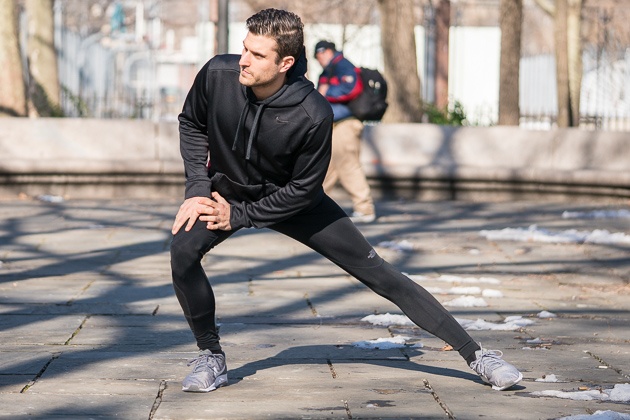- Like
- SHARE
- Digg
- Del
- Tumblr
- VKontakte
- Flattr
- Buffer
- Love This
- Save
- Odnoklassniki
- Meneame
- Blogger
- Amazon
- Yahoo Mail
- Gmail
- AOL
- Newsvine
- HackerNews
- Evernote
- MySpace
- Mail.ru
- Viadeo
- Line
- Comments
- Yummly
- SMS
- Viber
- Telegram
- JOIN
- Skype
- Facebook Messenger
- Kakao
- LiveJournal
- Yammer
- Edgar
- Fintel
- Mix
- Instapaper
- Copy Link
 Feeling good physically and mentally and achieving a positive outlook are essential for people in recovery from drug or alcohol addiction. Getting there – and staying there – depends on maintaining a healthy lifestyle marked by personal habits that help you remain sober.
Feeling good physically and mentally and achieving a positive outlook are essential for people in recovery from drug or alcohol addiction. Getting there – and staying there – depends on maintaining a healthy lifestyle marked by personal habits that help you remain sober.
These are the same good habits you learned about in grade school. Healthy routines have the power to help you avoid thoughts and temptations that can lead to self-destructive behavioral patterns. And you don’t have to hire a professional trainer or purchase a lot of expensive workout equipment. You should do what you know is good for your mind and body. After all, no one knows better how to take care of you than you.
Eating Right
 A healthy diet is one of the building blocks of a positive life and it’s especially important for addiction survivors because it can restore organ and tissue health as well as effective brain functioning. A restorative and sustainable diet is the same as the one you’ve always heard about. It includes fruit, vegetables, whole grains, proteins and low-fat dairy. It excludes or minimizes processed foods and those that are heavy in sugars and sodium and should at least limit your intake of caffeine. You’ll find it easier to maintain a healthy weight and the energy you need to lead an active lifestyle.
A healthy diet is one of the building blocks of a positive life and it’s especially important for addiction survivors because it can restore organ and tissue health as well as effective brain functioning. A restorative and sustainable diet is the same as the one you’ve always heard about. It includes fruit, vegetables, whole grains, proteins and low-fat dairy. It excludes or minimizes processed foods and those that are heavy in sugars and sodium and should at least limit your intake of caffeine. You’ll find it easier to maintain a healthy weight and the energy you need to lead an active lifestyle.
Get Moving
 Regular exercise is another pillar of a healthy lifestyle, and it’s also important to maintaining sobriety. Exercise activates chemicals in the brain that make you feel good naturally. It helps you keep up a healthy glow, which in turn helps you feel good about yourself. A positive body image is a powerful asset when it comes to avoiding self-destructive thoughts and actions. Your leaner and stronger appearance makes you want to keep exercising.
Regular exercise is another pillar of a healthy lifestyle, and it’s also important to maintaining sobriety. Exercise activates chemicals in the brain that make you feel good naturally. It helps you keep up a healthy glow, which in turn helps you feel good about yourself. A positive body image is a powerful asset when it comes to avoiding self-destructive thoughts and actions. Your leaner and stronger appearance makes you want to keep exercising.
One of the great things about exercise is that it’s so easy to personalize: You can benefit greatly from doing things you love to do. If you’re into walking in the woods, you’ll get a great aerobic workout doing what you enjoy. If you enjoy building muscle mass, a set of free weights and a weight bench are really all you need to achieve your goals. If a team sport is what you like best, there are lots of options to choose from, from basketball to softball and tennis. For those who prefer a solitary approach, yoga is a great way to enhance flexibility and muscle strength while you make the mind-body connection that helps you maintain sobriety.
Sleep and the Importance of Your Sleep Environment
 One of the most overlooked basics of good health is sleep. Experts typically recommend getting eight to 10 hours of sleep a night and not to short-change yourself: Sleep isn’t something you can borrow against. Your mind and body need a steady and dependable sleep routine, not four hours one night, eight hours the next and so on.
One of the most overlooked basics of good health is sleep. Experts typically recommend getting eight to 10 hours of sleep a night and not to short-change yourself: Sleep isn’t something you can borrow against. Your mind and body need a steady and dependable sleep routine, not four hours one night, eight hours the next and so on.
Sleep helps addiction survivors make good decisions by improving focus and clarity as well as avoiding the emotional ups and downs that can make it so difficult to avoid relapses.
The most important step in establishing good sleep habits is to set up a sleep environment in a calming, quiet, dark and comfortable place. If you’re still waking up feeling unrested or in pain, it could be time to upgrade your mattress to one that provides the proper support. A worn out mattress may be doing you more harm than good. If you already have back or joint pain, look for a medium-firm to firm mattress (usually a 5.5 to 7.5 out of 10 on the firmness scale).
The Bottom Line
Staying clean and sober is a round-the-clock endeavor, and you need all of your physical and mental resources to meet the challenge. That means eating right, getting regular exercise and sleeping at least eight hours every night. Meeting each of these important objectives will go a long way toward reinforcing your recovery and keeping you on the path to good mental and physical health.


